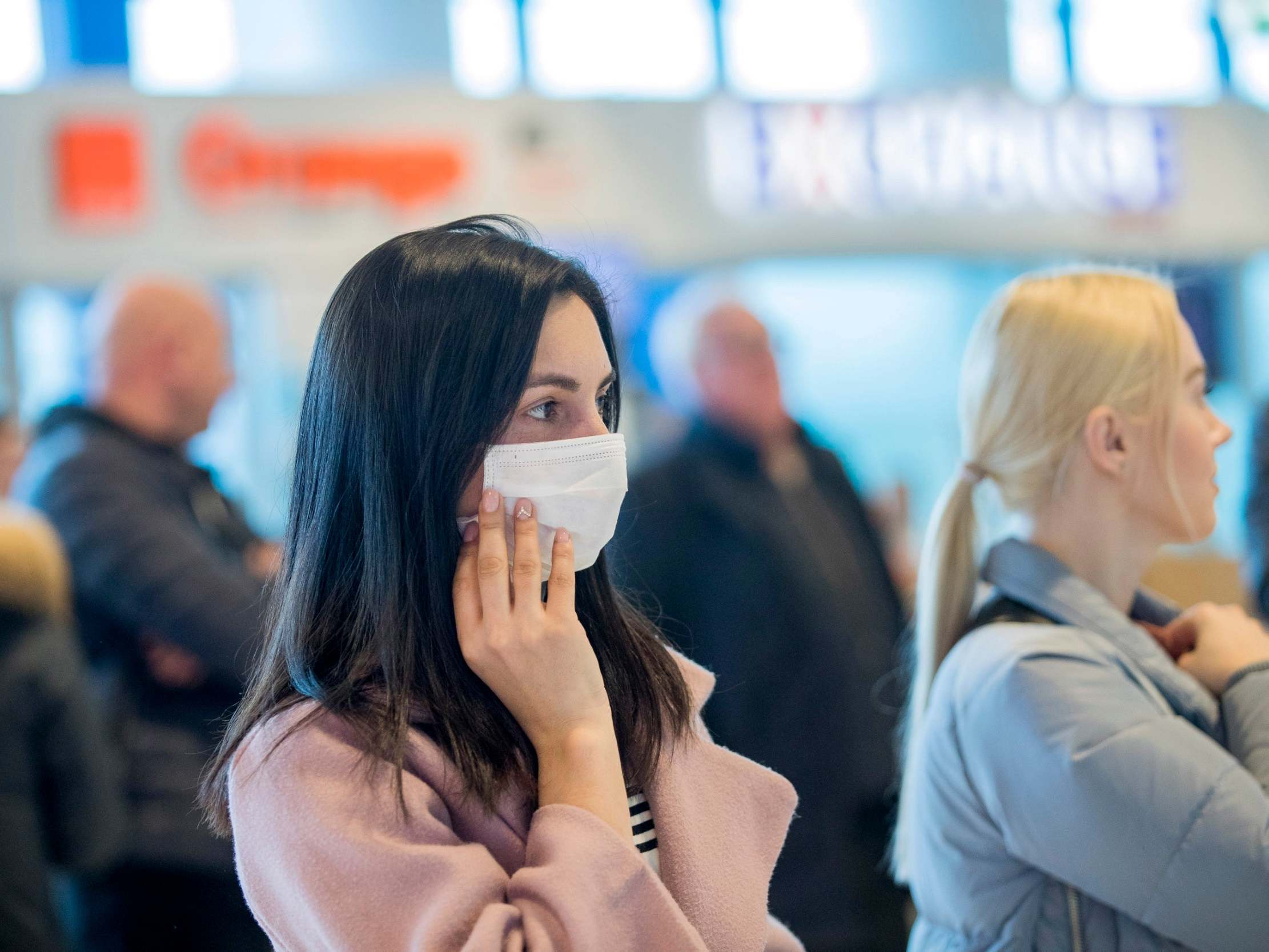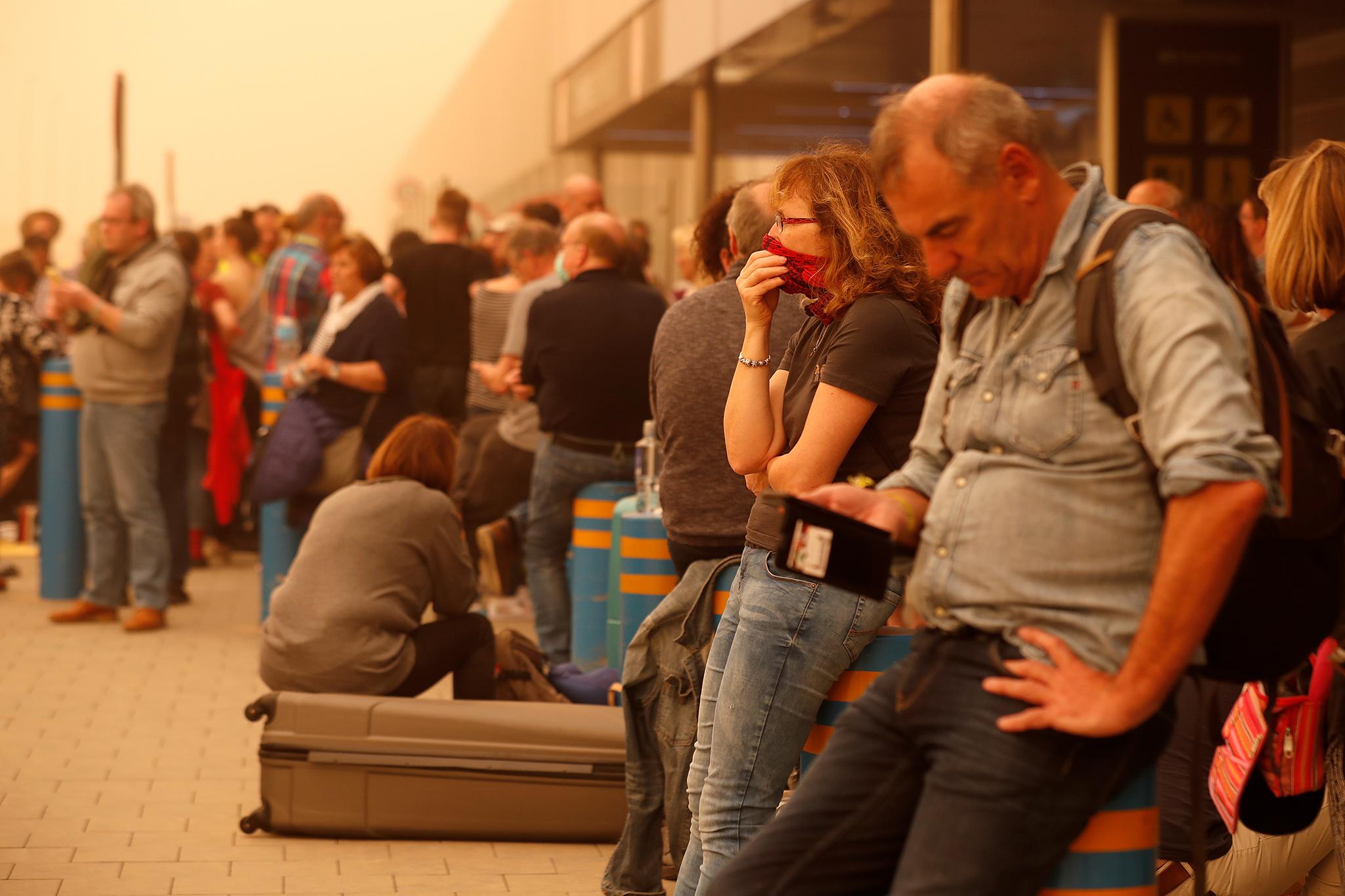Will self-quarantine costs be covered by our travel insurance if we catch coronavirus?
Simon Calder answers questions on the outbreak and one on recouping earnings after a flight cancellation


Q My wife and I are travelling to Thailand on Wednesday. We booked months ago. I was just checking with my travel insurer, who confirmed that we were fully covered while there despite the coronavirus.
However, they were unsure whether, if we were required to self-quarantine for 14 days and missed our flight home, they would cover it. They said that it would be dealt with on a case-by-case basis, which is hardly helpful.
We are travelling independently with no travel company assistance.
Donald W
A Quite rightly, your insurer is continuing to offer full cover despite the spread of Covid-19. While new policies do not generally cover the traveller against claims due to the coronavirus, because it is now a “known risk”, insurance taken out before the spread became apparent should continue to provide cover.
It is important to say that, compared with the multitude of other risks on your forthcoming trip, the chances of being anywhere near someone with this unpleasant virus are very low – and drastically reduced if you keep washing your hands thoroughly and avoid people who look unwell. Be particularly wary at airports, which are real bio-hazards.
Once in Thailand, be aware of the risks posed by terrible driving standards, poor air quality and terrorism.
Many travellers have expressed concern about being asked or ordered to self-quarantine if they are feared to have contracted the virus. It follows the high-profile lockdown of a cruise ship in Japan and a hotel in Tenerife.
This is uncharted territory, and therefore exactly who pays for extra costs involved is uncertain. To answer your specific question about the flight home: in the extremely unlikely event that you are unable to take it, a good airline will understand the extenuating circumstances and allow a free transfer to the first available flight you can take.
Extra costs, such as meals and accommodation, are likely to be borne by the local authorities – though there is no guarantee of this.
It is not unreasonable, given the unprecedented circumstances, for your insurer to say cases will be considered individually. If you are unhappy with the outcome, you can complain to the Financial Ombudsman Service. But I am almost certain it will not come to that.

Q My in-laws have just returned from a cruise that was diverted east of Colombo, missing two stops in Malaysia, one in Thailand and the final destination in Singapore. The ship diverted and sailed for an additional unplanned week to Perth, from where they were flown back to Heathrow on business class. They effectively lost more than half their destinations with no choice on the matter. They are wondering if they are entitled to any form of refund either direct from the cruise line (they booked it as a package, including flights) or from travel insurance?
James
A Since widespread changes to cruises began because of the spread of the coronavirus, the vast majority have involved cancellations and curtailments rather than extensions. So your in-laws’ case is slightly tricky. Let’s start with the law that applies to their holiday contract, the Package Travel Regulations 2018. These rules state: “The organiser must offer the traveller an appropriate price reduction for any period during which there is a lack of conformity.”
There was certainty “lack of conformity”. Had the cruise been abandoned in Sri Lanka, it would have been easy to compute the proportionate refund that was due: if, say, four out of eight stops had been cancelled, then negotiations could start at one-half of the cost (though travel firms like to separate out the cost of the air fare, so they might have had to settle on one third).
But the cruise firm may argue that your in-laws got well rewarded, with an extra week onboard. If it was “all expenses paid”, ie with drinks thrown in and no expectation of gratuities, that has some merit. Yet your in-laws could counter that they were reluctant passengers, taken against their will to somewhere in which they had no interest, entirely for the benefit of the cruise line.
So it would certainly be worth sending in a claim, along with a request for recompense for any actual financial harm caused by the cruise line’s decision – such as keeping pets in kennels or unused train tickets to get them home. The cruise line may well argue that these were “unavoidable and extraordinary circumstances”, thereby limiting compensation, but I am not sure they could prove that their choice was “unavoidable”. Any outstanding financial losses may be compensated by travel insurance.
Finally, I am slightly surprised the cruise line has not been more proactive in making offers – such as a half-price future voyage. A generous proposition might have been enough for your in-laws and other passengers to ease up in the search for financial restitution.

Q Could you advise about compensation for loss of earnings after a flight cancellation? I was one of the many passengers caught up in the sandstorm in the Canaries last month. I was stranded in Gran Canaria with my husband and daughter for five days after our easyJet flight from Las Palmas to Manchester was cancelled on Saturday 22 February.
Although easyJet provided decent temporary accommodation, we could not book another direct flight home on easyJet, as none were coming up until 29 February. This changed on the Monday when we finally got through to their helpline and were advised that there would be no replacement flight and to make our own arrangements.
We booked the earliest direct flight available with Jet2 on Thursday 27 February. This meant that I missed all three days that I normally work as a part-time teacher. Is there any way I can claim for these lost earnings?
Name supplied
A You were among the thousands of passengers whose homeward journey plans were wrecked by the dust storm that swept in from the Sahara. Gran Canaria was the worst affected island, and I am glad you were not among the many passengers forced to sleep at the airport when their airlines decided not to find hotels for them.
Under European air passengers’ rights rules, there is no obligation for easyJet to provide cash compensation, because the cancellation was clearly beyond its control.
However, those same regulations are clear about what easyJet – and any other European airline – is obliged to do when it cancels a flight. The carrier must inform the passenger of their rights: to accommodation and meals as necessary, and to be flown to their destination as soon as possible, even if that means easyJet has to buy a flight on another airline at a high price.
Your account suggests that easyJet neglected to provide a full picture of your options, and only two days later said you could book on another airline. Had you known this immediately after the cancellation, you would have been able to book another flight knowing that easyJet would recompense you. While it is very unlikely that you would have got a flight on Sunday, when there were yet more cancellations, there was some availability on indirect routings on Monday. None of these would have got you home in time for work on that day. I think you can make a reasonable case under the Consumer Rights Act that easyJet failed in its professional duty, and that you lost out as a result. But it may involve a legal battle.
Email your question to s@hols.tv or tweet @simoncalder
Join our commenting forum
Join thought-provoking conversations, follow other Independent readers and see their replies
Comments